Whether on social media or walking, you’ve likely encountered a relatively new dog breed called a bernedoodle. The news is out: They make for great dogs. This may have you asking, why are bernedoodles good dogs? What makes them so unique? To answer those questions, we first must answer… what is a bernedoodle?
A Bernedoodle is a delightful hybrid dog breed that results from crossing a Bernese Mountain Dog and a Poodle. This unique combination is the start of what makes bernedoodle good dogs by bringing together the best of both worlds: the gentle and loyal nature of the Bernese Mountain Dog and the intelligence and hypoallergenic coat of the Poodle. This pairing revolutionizes the Bernese Mountain Dog breed, offering a healthier, more versatile companion.
Another benefit that answers why bernedoodles are good dogs is that they can vary in size! Within bernedoodles, there are different generations of bernedoodles, which leads to different genetic breakdowns. A quality bernedoodle breeder should be able to explain the genetic breakdown of your potential bernedoodle puppy. The generation and parents’ size can show us how big your bernedoodle will be. A bernedoodle size can range from micro minis to large standards. However, you will typically see mini or standard as the size that is given—an important reminder to ask for an exact weight range to see where they fall within mini and standard.
Mini Bernedoodle Pros and Cons:
Pros:
Cons:
Bernedoodle pros and cons (Standard)
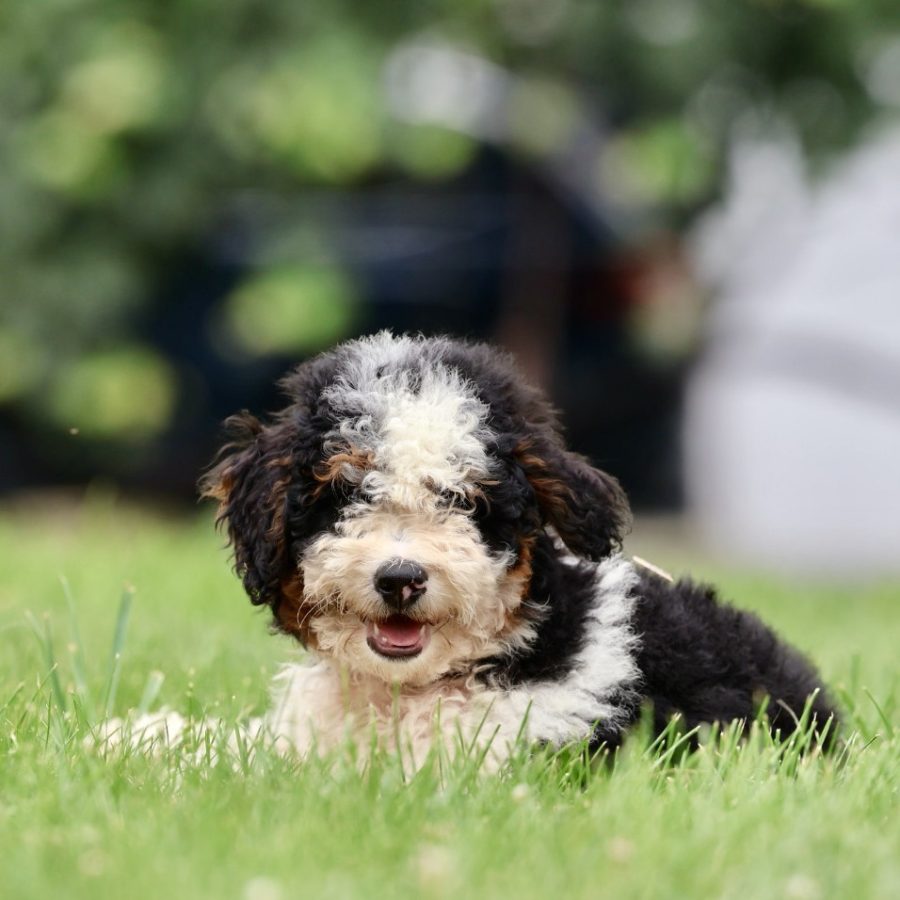
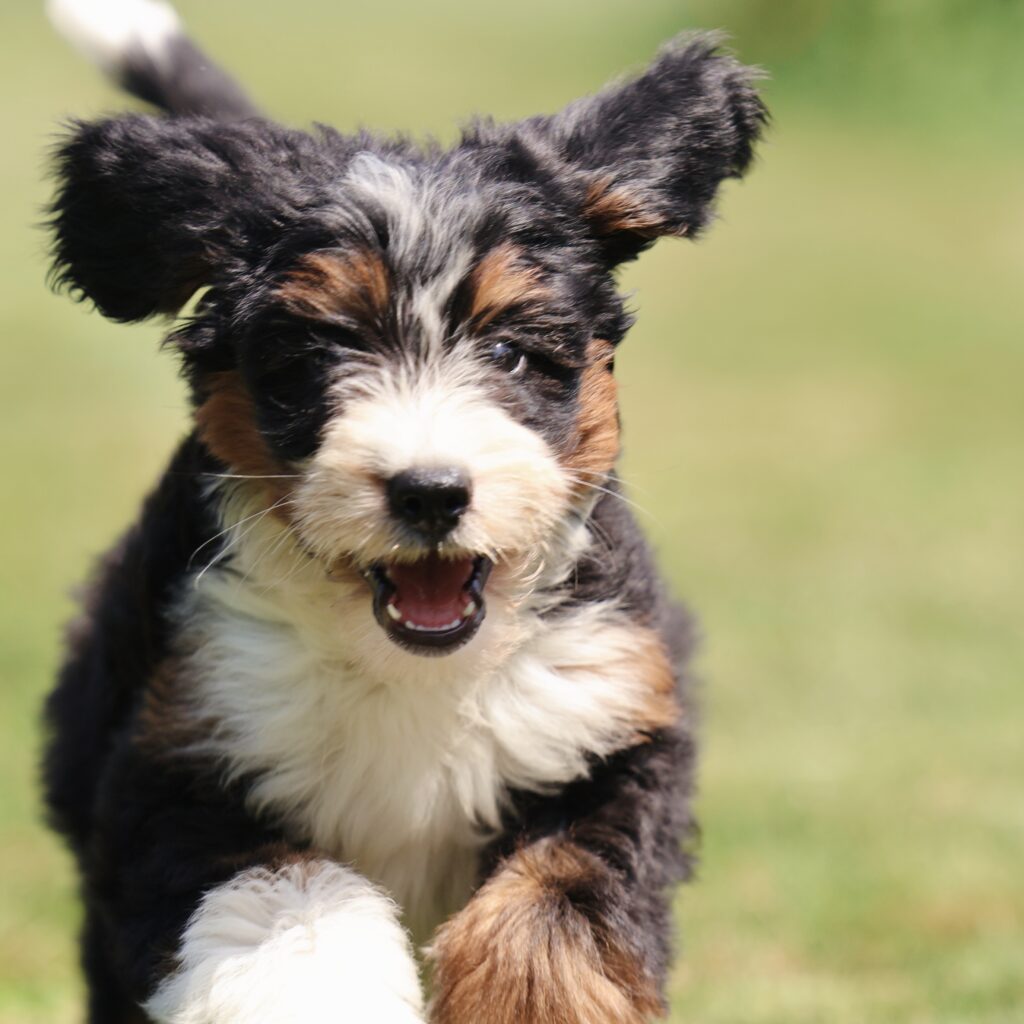
The Bernese mountain dog’s temperaments shine through! Bernese mountain dogs are known as gentle giants and loyal dogs. You can find the same characteristics in bernedoodles without the large sizes. They inherit the Bernese mountain dogs’ calm/affectionate personalities that are bound with their owners, making for loyal dogs. Add that to their playful & friendly nature they make for a great family dog. How about energy levels? The answer to questions such as are bernedoodles high energy, are bernedoodles hyper? It would be a resounding no; due to its gentle nature from Bernese, there is no reason to worry. Here’s a full breakdown of their temperament:
Key Temperament Traits:
Another big plus in answering the question are bernedoodles good dogs, they are considered a hypoallergenic dog breed. Due to their poodle genetics, their coat is more curly, leading to less shedding. Yet again, it is essential to know the genetic breakdown of your bernedoodle as it will help establish the likelihood of being more hypoallergenic. For example, someone with allergies may want to avoid an ultra-bernedoodle as they are 75% Bernese and 25% Poodle, making their coats wavy. Allergy sufferers should search for an F1B Bernedodole where the genetics breakdown to 75% poodle and 25% Bernese. However, F1,F2, and mutli-gen bernedoodles are likely to be hypoallergenic as well. If you value bernedoodles hypoallergenic features in your search for a puppy, you should keep this general rule of thumb in mind: The more curls, the better and less shedding you will encounter.
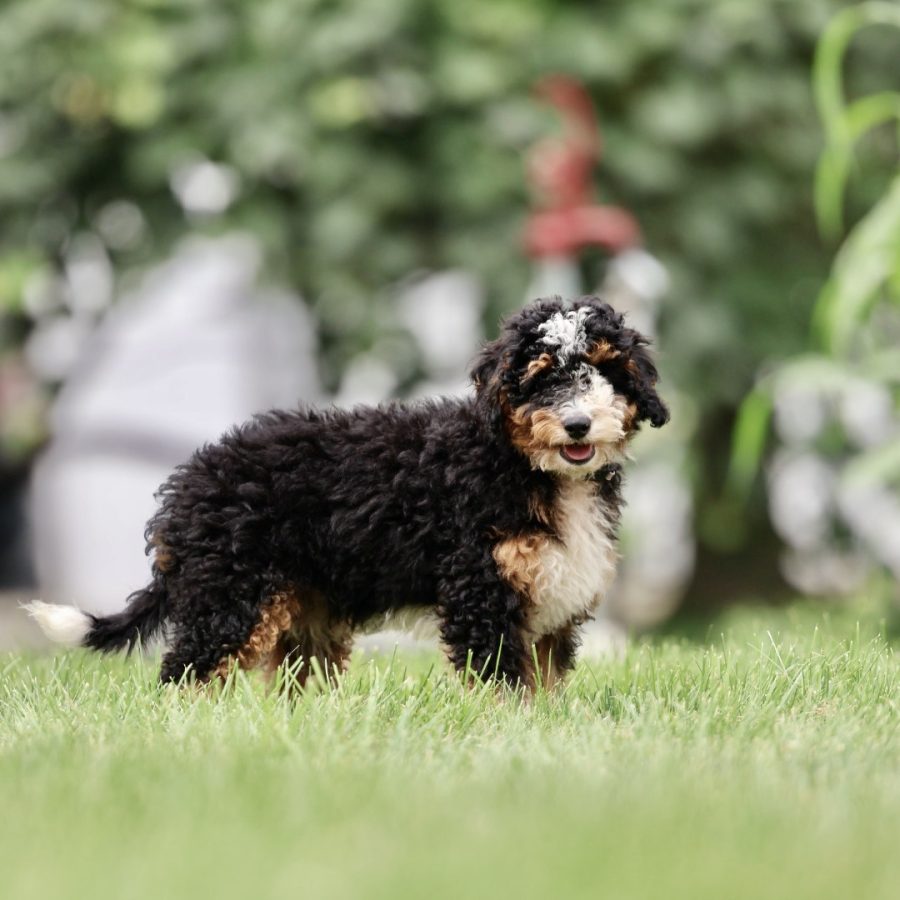
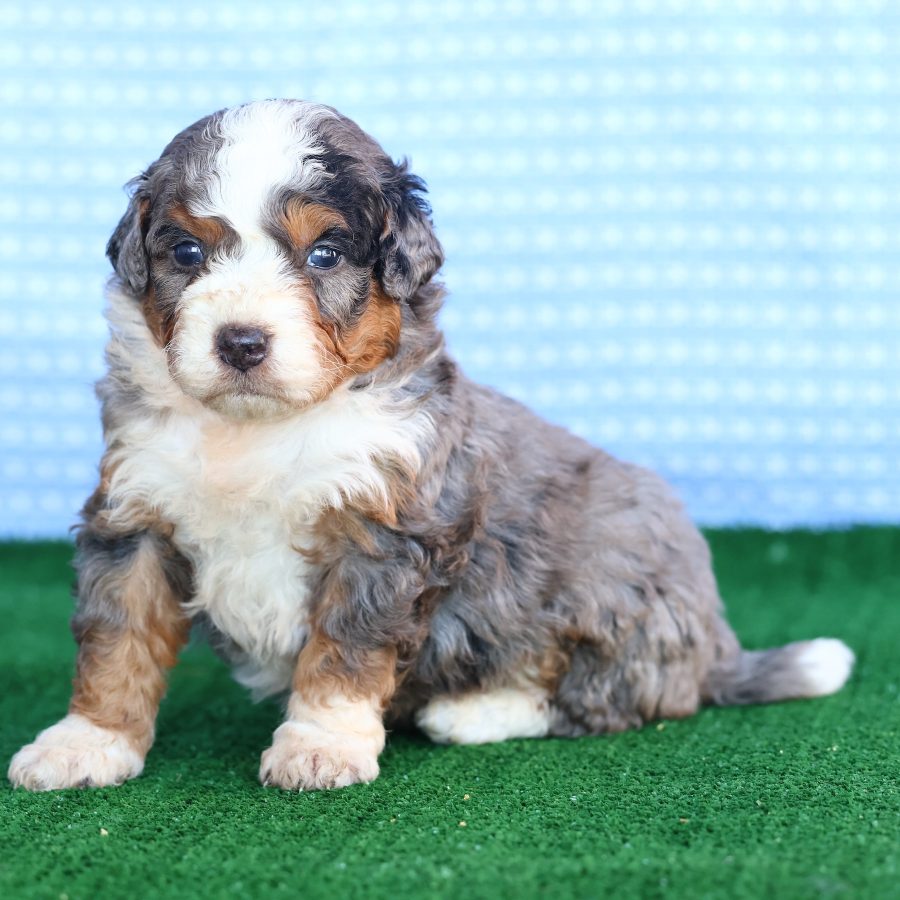
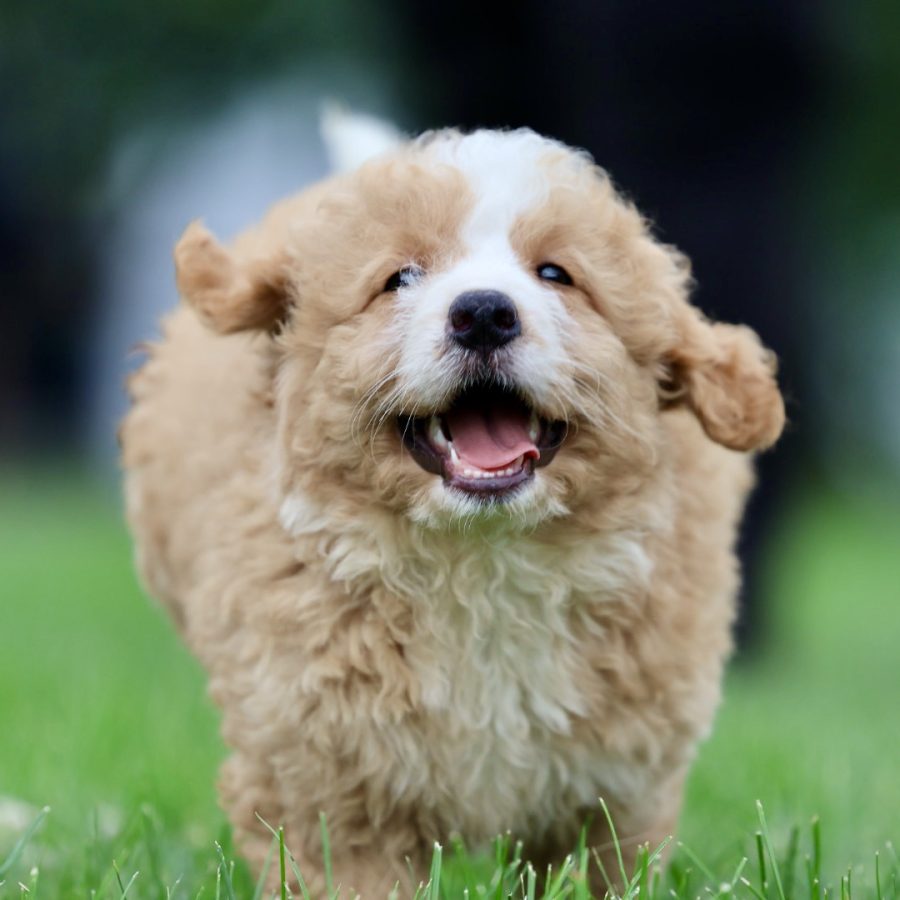
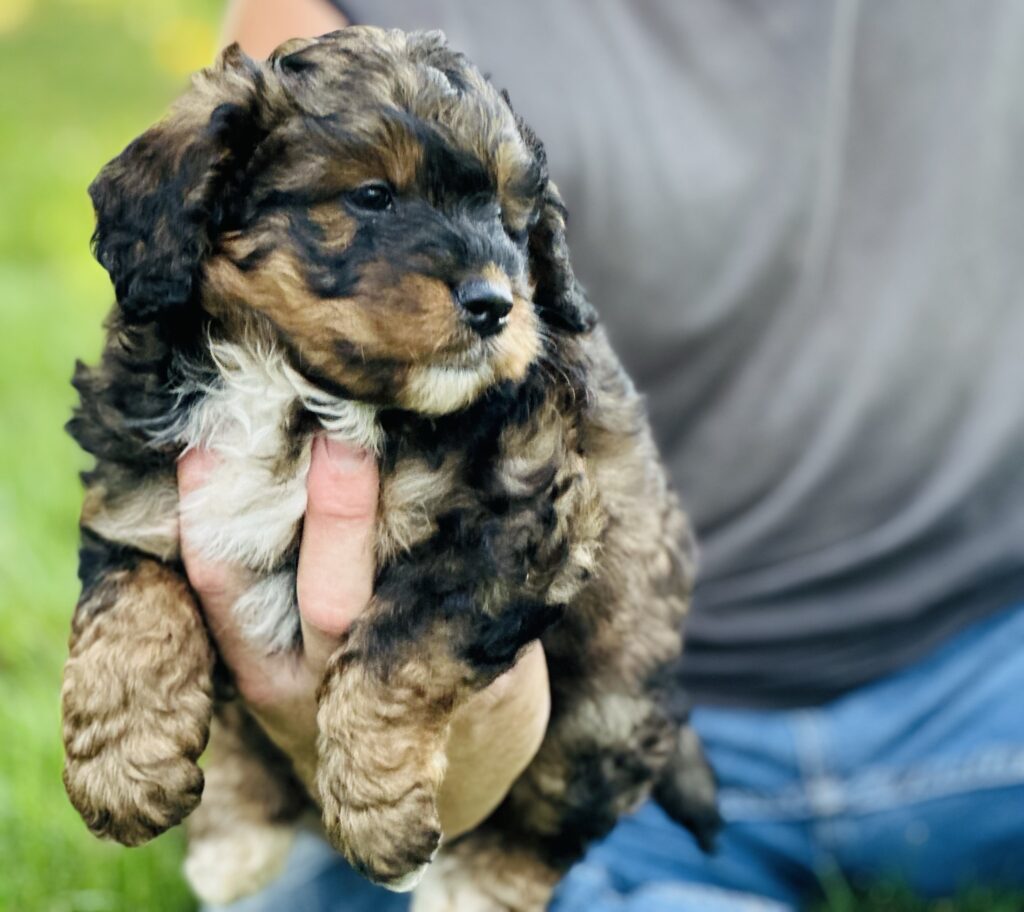
Black tri-color Bernedoodles are a stunning sight, with a rich, dark coat accented by striking rust-colored markings and patches of white. This classic color combination is reminiscent of their Bernese Mountain Dog heritage, giving them a timeless and elegant appearance. The black base color provides a bold foundation, while the rust accents add warmth and depth to their coat. The white markings, often found on the chest, face, and paws, create a beautiful contrast and highlight their unique features.
Merle Bernedoodles are captivating, with a unique and mesmerizing coat pattern. Their base color, often black or brown, is beautifully dappled with patches of lighter shades, creating a striking marbled effect. The merle pattern can range from subtle to dramatic, with some dogs displaying a striking “blue merle” appearance.
Sable Bernedoodle is a sight to behold, with a rich, warm coat that ranges from light gold to deep mahogany. This beautiful color is often accompanied by a darker mask around the eyes and muzzle, adding depth and character to their appearance. The sable coat can vary in intensity, with some dogs displaying a more pronounced shading.
Red Tuxedo Bernedoodle is a striking and elegant sight. Its rich, deep red coat contrasts beautifully with a crisp white chest, belly, and paws. This classic color combination, reminiscent of a tuxedo, gives it a sophisticated and refined appearance. The red base color provides a bold and vibrant foundation, while the white markings create a clean and elegant contrast.
Phantom Bernedoodles are unique. They have a rich base color, often black or brown, accented by contrasting markings. This unique color pattern resembles the markings of a Doberman or Rottweiler, with darker shading on the muzzle, ears, and legs. The phantom markings create a sophisticated and elegant appearance, highlighting their distinctive features.
There are even more variations within these different coat color variations, so stay tuned for our expanded guide to these colors.
One of the most important aspects of owning a Bernedoodle is proper grooming. Knowing your bernedoodle’s generation will help you better understand your pup’s coat, leading to better care for your pup. Here are some general grooming guidelines to keep in mind when adding a bernedoodle to your home
Ear Cleaning: Clean your Bernedoodle’s ears regularly to prevent infections.
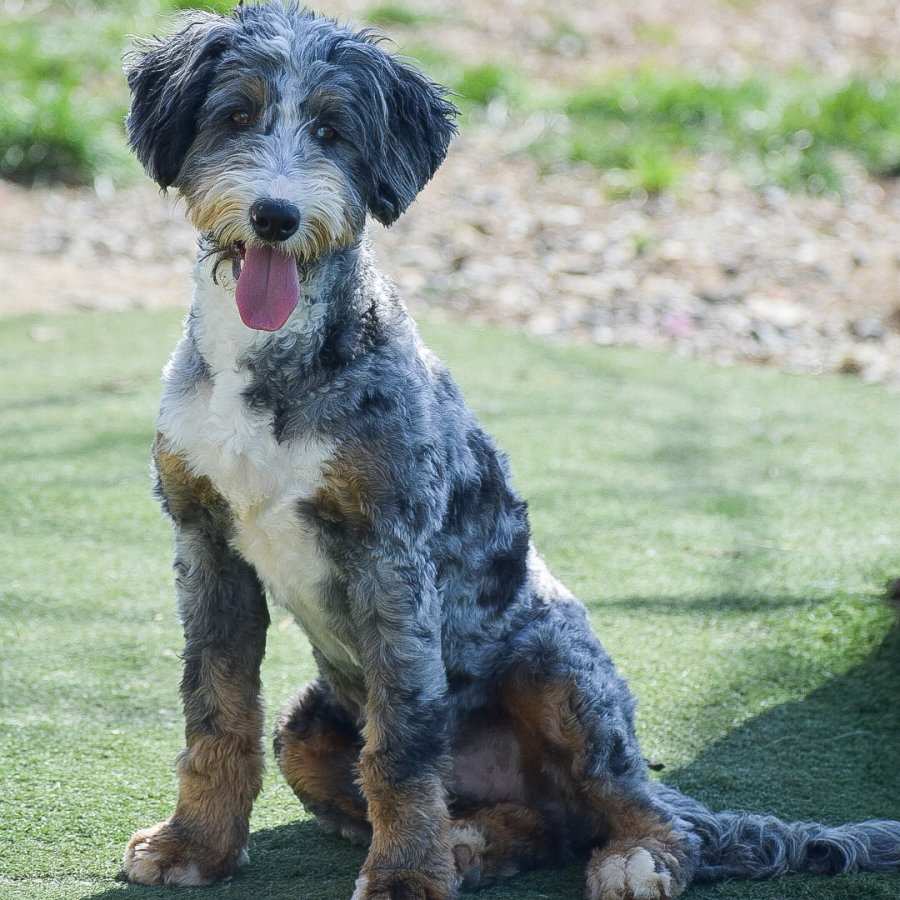
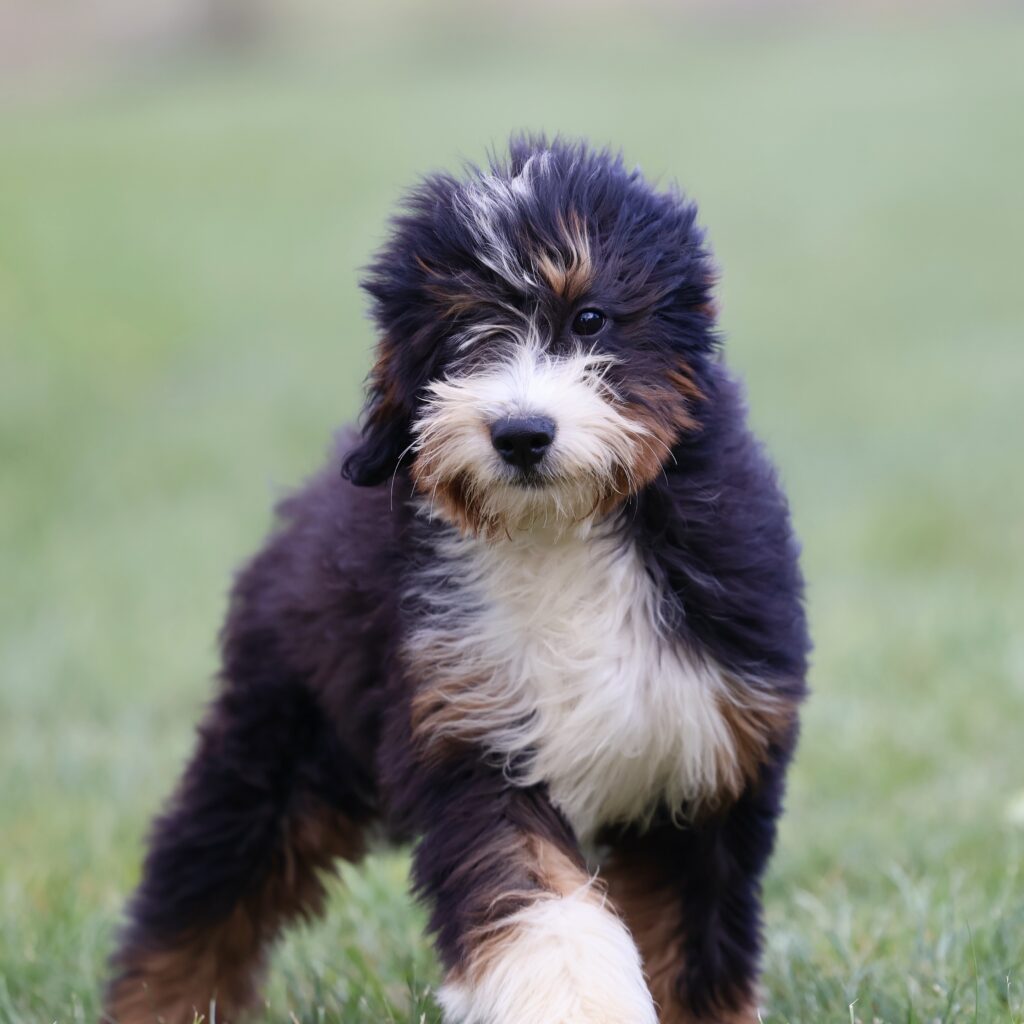
While Bernedoodles are generally healthy dogs, they can be prone to specific health issues. It’s essential to be aware of these potential health concerns and take steps to minimize their impact:
All right, now that you’re an expert in all things bernedoodle and can now answer whether are bernedoodles good dogs? Let’s take the next step by finding the perfect bernedoodle pup for you. First, decide on the generation of bernedoodle and coat color you are looking for. Do some research on bernedooodle breeders in the area. Consider searching terms such as bernedoodle breeders near me, bernedoodle breeders.
As you continue your search, here are some essential things to consider.
You have learned the many benefits of having a bernedoodle. Bernedoodles are truly remarkable dogs that bring joy and love to their families. Their affectionate nature, intelligence, and hypoallergenic qualities make them exceptional companions for people of all ages. By understanding their needs and providing them with a loving and stimulating environment, you can create a strong bond with your Bernedoodle and enjoy a fulfilling life together. Thanks for reading and learning about why are bernedoodles good dogs.
Join our mailing list for special promotions and updates. We will also reach out to see how we can best assist you.
Join our mailing list for special promotions and updates. We will also reach out to see how we can best assist you.
Berry Patch Puppies is located in the beautiful open countryside of rural Pennsylvania. All of our wonderful puppy’s Mothers and Fathers have been screened and certified free of one or more genetic defects. All dogs and puppies sold are certified by licensed veterinarians as healthy and up to date on all vaccines and dewormings.